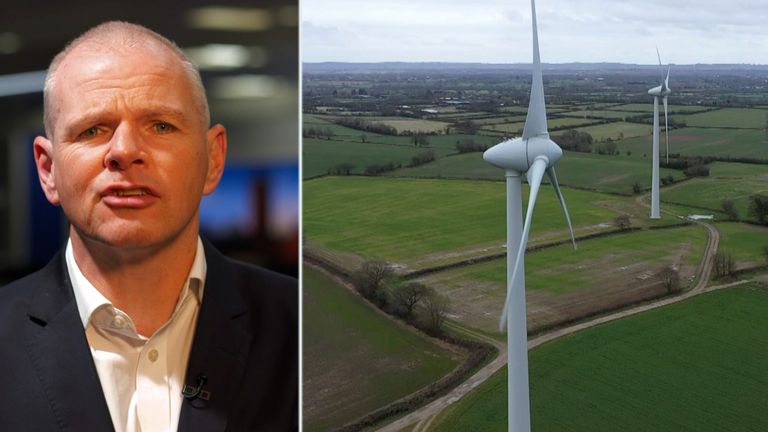There is rampant speculation that the government might do something to bring down energy bills in the budget next week – but what could this look like, and will other taxes go up?
The high rates people pay for heating and electricity is becoming a more salient issue as temperatures drop, and the confirmation the price cap is rising will do nothing to help public opinion on the topic.
Energy bills are also rising as a direct result of government policy, including on net zero, with some criticising Energy Secretary Ed Miliband for his stalwart defence of the project.
Politics latest: Follow live updates
Technology Secretary Liz Kendall told Sky News that the government is looking at taking “more action” on the cost of living, when asked if bills were coming down.
In their election manifesto last year, Labour promised to get energy bills down by £300 by 2030. Here’s how this year’s budget could work towards that.
Remove VAT
Currently, bill payers have to fork out 5% of their charge in VAT.
This would be an easy target for the government if it wants to knock a lump off everyone’s bills, with estimates it could save people about £80 from their annual payments.
Read more:
‘No shortcut’ to cheaper bills, warns minister
Badenoch: ‘get Britain drilling again’
However, there are warnings that this cut would benefit those who spend more on energy more than the poorest households, as it is a percentage tax – which might draw criticism for not aligning with the government’s “working people” mantra.
And with budgets tight, it is unlikely the government would be able to find the estimated £2.5bn in savings from axing VAT on energy, so tax would need to be raised elsewhere to account for it.
Remove policy costs
As Sky News business and economics correspondent Paul Kelso pointed out with the announcement of the rising price cap, wholesale energy prices have fallen.
But household tariffs are going up because of government policy, according to Ofgem, Paul says, with taxpayers forking out for the Sizewell C nuclear power station, the warm homes discount and changes being made to the grid.
Some think tanks and action groups have called for these payments to be moved off bills and into general taxation – like with VAT – in a bid to make those with the “broadest shoulders” carry more of the burden.
Some estimates suggest moving policy payments off bills and to tax could save people again about £80 from their annual bill.
Combined with the VAT change, this leaves a potential for about £160 to be knocked off the average yearly bill – but the money would be raised elsewhere from the expected tax rises.
Changing net zero targets
The most unlikely measure is a change to the government’s net zero targets, but major changes to the policy could knock money off the average bill.
The cost of reaching net zero by 2030 – a key goal of Mr Miliband – is borne out in bills as the reform is being paid through levies of energy bills.
By delaying the 2030 target, it would allow costs to be spread over a longer period, with the trade-off being a longer period of time exposed to higher gas prices.
If this was imposed on Mr Miliband by the Treasury, it would raise speculation about whether he could continue as energy secretary.
There are a myriad of other problems with the energy system that are causing higher bill prices.
One is curtailment costs – about £40 a year of every bill is paid to green energy producers to stop them making electricity.
This is because the grid is so old it cannot transport power from areas like Scotland to the rest of the UK when a lot is being generated. This power also cannot be stored for reuse.
The government is trying to resolve issues with the grid, but this is happening alongside net zero projects.
The Treasury does not comment on budget speculation.



